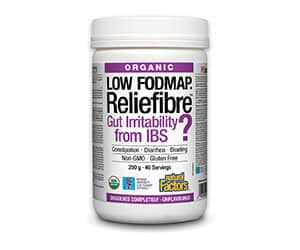
In addition to nourishing our bodies with anti-inflammatory foods, exercising regularly, getting adequate sleep, and limiting screen time can all contribute to a clearer and sharper mind.
Struggling to focus, experiencing forgetfulness, having difficulty concentrating, and feeling disconnected and mentally slow are terms we use to describe the hard-to-put-into-words symptoms of brain fog, also known as brain fade. There has been a spike in posts and online searches for these terms in the past few years.
Like fatigue or pain, brain fog is a symptom that has many underlying causes. At the heart of cloudy thinking lies neuroinflammation. That term may sound alarming, but it’s part of the body’s normal healing reaction. The body produces inflammatory compounds to repair damage in response to injury, infection, or stress. When our brain experiences inflammation, it can disrupt normal cognitive function, leading to symptoms like difficulty concentrating, mental fatigue, and yes, even a dissociated, foggy feeling.
NEUROINFLAMMATION TRIGGERS
Neuroinflammation has many triggers, all paving the way for brain fog to creep in. Stress, depression, anxiety, insomnia, and viral infections are all culprits that can set off inflammation in the brain. Hormonal changes are a major culprit, with brain fog being a top menopausal complaint. Other issues like low iron levels, excessive screen time, and poor dietary choices can also fuel brain fog.
Living with brain fog can be highly frustrating. However, steps can be taken to clear away the fog and reclaim mental clarity. One powerful approach involves focusing on nutrition to combat inflammation.
OMEGA-3 FATTY ACIDS found abundantly in fatty fish, like salmon, and supplements have been shown to possess anti-inflammatory properties. Adding omega-3-rich foods like salmon and sardines to your diet or taking supplements may help alleviate brain fog.
MAGNESIUM DEFICIENCY impairs the brain’s ability to clear inflammatory compounds, contributing to chronic low-grade neuroinflammation. Foods rich in magnesium include spinach, almonds, pumpkin seeds, quinoa, and dark chocolate. Magnesium supplements are available for people who may need an intake boost. Magnesium L-threonate, in particular, has been shown to cross the blood-brain barrier, making it a promising option for combatting neuroinflammation.
PALMITOYLETHANOLAMIDE (PEA), a naturally occurring fatty acid originally found in egg yolks, is known for its natural pain-relieving effect. PEA may help reduce neuroinflammation and alleviate symptoms associated with brain fog. PEA supplements may offer relief for individuals struggling with brain fade.














